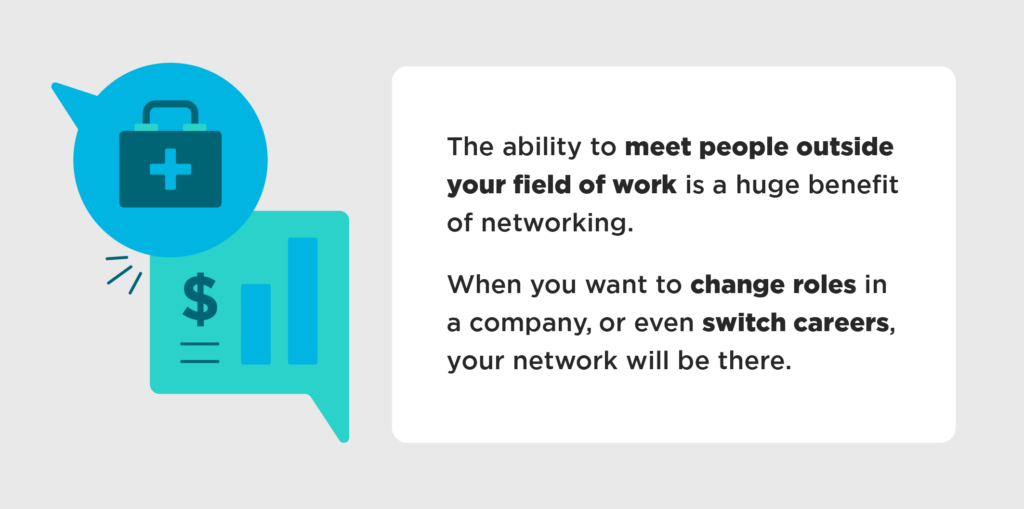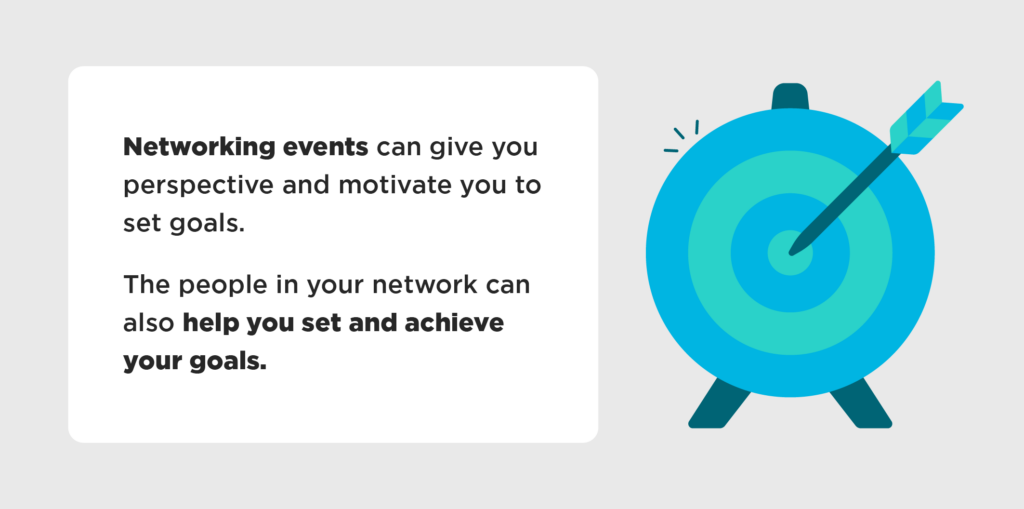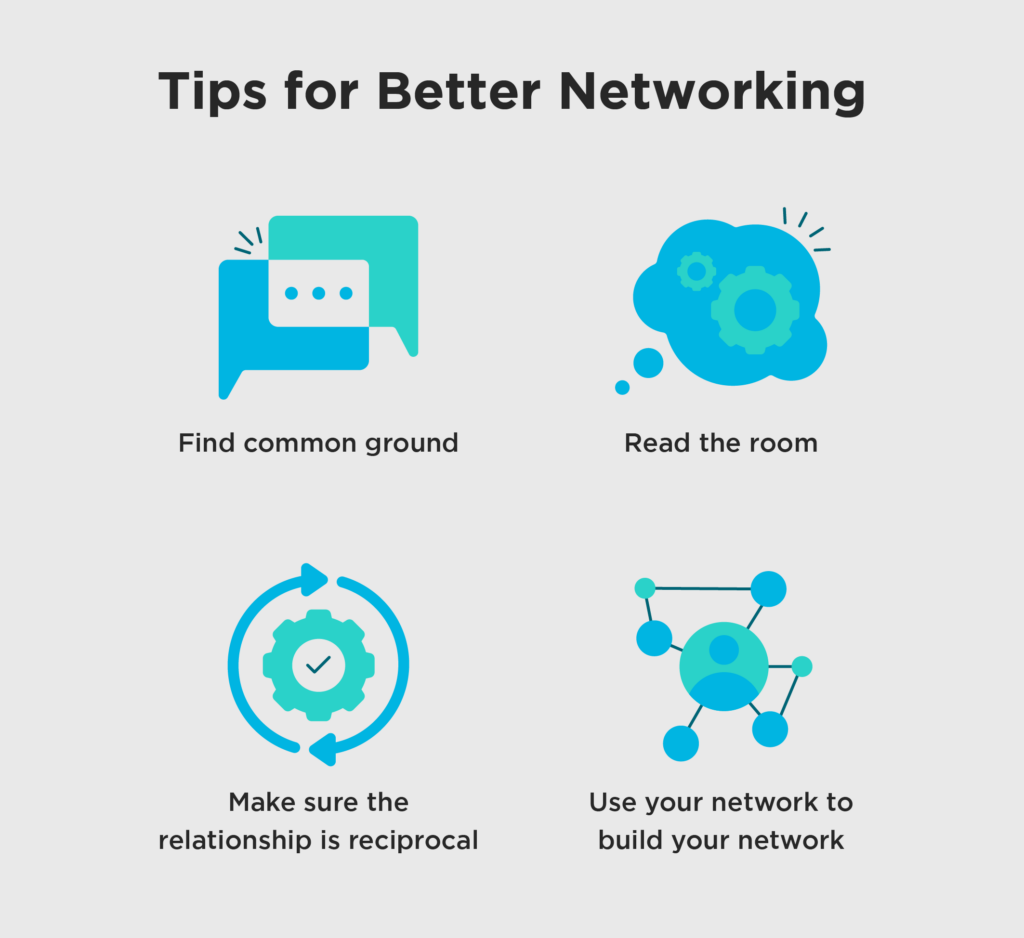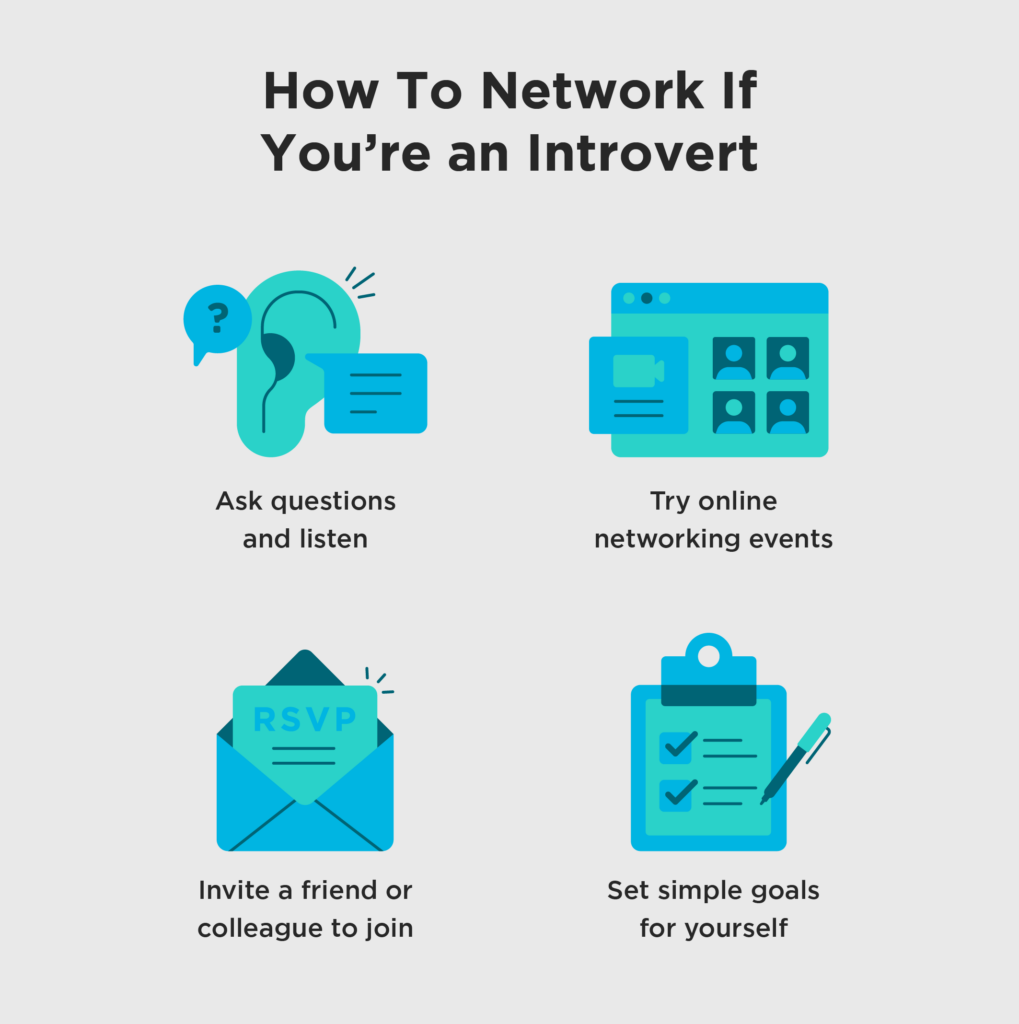Why Is Networking Important? 13 Career-Building Benefits (+Tips)

quick answer
Networking is important because it increases your visibility, improves access to job opportunities, and creates relationships. Your network is a source of helpful information, feedback, and advice.
In This Article
Networking is a vital part of professional development in any industry. Your network is made up of people who can share personal advice, job opportunities, and professional guidance. Since 70%–80% of job offers aren’t published, your network will make a big difference.
On top of that, 73% of LinkedIn users report being hired due to an introduction from their network. In the same survey, 89% of hiring managers said that referrals are important when qualifying candidates.
You don’t need a network to find jobs online, but you’ll probably need references when searching for jobs. Building a network is an ongoing process, and there are plenty of great reasons to work at it. While the idea of networking might feel intimidating, you’ll get more comfortable the more you do it. Read on to learn why networking is important and discover valuable tips so you can network better.
Key Takeaways:
Networking itself is a learning experience. How you communicate with others is fundamental to business relationships, and networking helps develops those skills. Don’t worry about being a bad networker. There is no perfect way to network, and taking on a new challenge will help you build confidence.
Many networking events involve training seminars, which are an opportunity to meet new people in your industry and access new educational resources. Even if you don’t meet new people, the networking process provides access to learning opportunities. Large conferences are great networking events because you will all be eager to converse and share ideas about what you learned through the day.
Networks can be a resource for job references, job opportunities, career support, and more. You’d be happy to answer a question for a friend, and they’d be happy to do the same for you. Your network will function in the same way.
You can ask your network about a potential job opportunity. Have they heard of the company? Can they connect you with somebody who works there? Down the road, you may be inclined to return the favour when they need help. Everybody in your network has strengths and weaknesses, and you all benefit from sharing resources.

The ability to meet people outside your field of work is a huge benefit of networking. These connections provide reliable information on topics you may not be familiar with. For example, marketers should connect with Data Analysts and vice versa. These different jobs have a lot of overlap, and you’ll both appreciate sharing insights.
When you want to change roles in a company, or even switch careers, your network will be there. If this time comes, you’ll feel confident with a dynamic network of industry professionals backing you up. It’s great to have a Headhunter in your network because they can generate job opportunities.
Networking events can build professional confidence. Spark a conversation with somebody in an advanced role to gain valuable insights from a leader’s perspective.
Read people’s body language and be a good listener. You don’t need to talk about work to build professional confidence. Try to develop network connections over a shared interest in things like sports, pop culture, or hobbies like gardening.
Networking events help you stay up to date on industry jargon and trends. For example, an aspiring legal assistant should speak with lawyers about their work and ask questions. It’s hard to feel confident as a professional when you’re uninformed. Absorbing this technical information outside the office can boost your confidence at work.
The process of networking will help you build confidence in public speaking and other social skills. Listening to others and presenting yourself can be challenging — some may consider it to be one of their greatest weaknesses — but it all comes down to practice. Once you adapt to the process, networking can be rewarding and raise your self esteem.
Many professionals work from home, which can be an isolating experience for some. Networking events are a great way to get out there and socialize with other people. Lots of network events are fairly casual, meaning you can check in on your network with a friendly LinkedIn message.
Networking events are a great way to receive feedback on your professional skills. An insightful seminar or conversation will help you identify the gaps in your skillset. This isn’t a bad thing. In modern business, there’s always a new tool, trend, or business framework to learn about.
It’s important to find areas for improvement, so treat these insights like an opportunity. For example, if you find networking difficult, it can be a sign to work on your social skills. Don’t take it personally — it’s all part of your growth as a professional.
You can find inspiration through networking at conferences. There is so much to learn from a room full of people discussing a seminar together and sharing ideas. Conferences will usually block out times of the day for people to meet and exchange ideas together.
You can discuss ideas with your network, too. For example, you might ask your network for feedback on your slide presentation for a potential client. Tell your network about your ideas and ask for their honest opinion. Always be open and receptive to their ideas so they know you appreciate their time.
Your network can provide a fresh set of eyes when you need them. When you’re feeling stuck at work it’s good to get some outside perspective. Sometimes we are too busy and don’t have time to step back from a project. This is a great time to lean on your network for support.
You might even feel stuck in your current career — you’ll definitely benefit from some outside perspective. Networking events let you learn about other companies and how they run. This can be inspiring, especially if you’re looking for new opportunities.
Whether you’re looking for a new career or not, you can always learn something from surveying your options at network events. Where is your industry headed? What job opportunities exist for somebody with your skill sets? What jobs are related to yours? Speak to your network, reach out to recruiters, or attend a networking event that interests you.
Your network can be a significant influence on your career. When you want advice on finding a new career, you should use your network. They can suggest opportunities or speak to somebody in their network who knows more.

Networking events can give you perspective and motivate you to set goals. Seeing the success of others can ignite your passion and encourage you to do more. According to a study on goal structures, a healthy sense of competition can lead to higher levels of motivation.
The people in your network can also help you set and achieve your goals. Reach out to somebody in your network and offer an exchange, like buying them coffee for the chance to get their advice. Close connections in your network might even help keep you accountable on your goals by checking in.
Considering the fact that 70%–80% of job offers aren’t published, being memorable can make a huge difference in your career. You don’t have to be the most charismatic person in the room. Show up to events and simply do your best to speak with others. People will start to remember you, and they might introduce themselves to you at the next networking event.
Being yourself is the key to being memorable. You should be professional in your manners but don’t be afraid to be genuine. Try to have pleasant conversations with others in your network, but don’t worry about saying the “right” thing. People respond positively to genuine interactions, and this will make you memorable.
Only use people you trust for your resume references that you’ve known a long time. You can rely on these people, and this trust is something you build over time. Networking is a path for building these long-term relationships.
Established relationships can boost your confidence when you need it. It always helps to see a friendly face when you’re in a new environment. These long-standing network connections can be a source of comfort when you’re at a new event or workplace.
Collaboration is vital when a project expands in scope and you need to outsource tasks. This can be especially stressful if you’re working against a deadline and need to find the right person fast. Your network is like a group of superheroes you can call on. And they can recommend other superheroes when you need them.
Let’s say you’re a project manager who needs a graphic designer. You might post to LinkedIn to see if anyone in your network has a lead. You can feel confident knowing the candidate is recommended by your network. The ability to call up collaborators is powerful because you skip the long process of searching, interviewing, and vetting candidates. Having a reliable network can impress your team, and you’ll look like a lifesaver.

Networking is more of an art than a science. There’s no rulebook for creating a network, but there are standards for socializing that you should remember.
You want to strike a balance between being casual and professional. This sounds vague, but it’s pretty simple! We’ve outlined a few tips to help improve your networking skills.

Some good news for introverted people: many introverts network and you aren’t alone. Networking as an introvert can feel like a big challenge, but you can get used to it with some practice. Try one of the tips below to begin developing your networking skills.
Students who are ready to graduate and start their career should understand the importance of networking. For example, students who network can find internship opportunities by connecting with industry professionals. The right internship can influence your career in a big way. Students who show ambition and express their goals at networking events can secure exciting job opportunities.
It’s actually an advantage to be a student while networking. Being a student brings up all sorts of questions that are perfect for networking. What are you studying? What are your future plans? Do you have work lined up? Take advantage of this opportunity while you can!
Networking connections you build as a student can last a lifetime. And Robertson College students can rely on free, lifetime career support from our dedicated Workforce Team. Work-ready students and graduates benefit from networking events, job referrals, and other resources designed to kickstart their careers.
Our Diploma Programs and Courses will give you the practical, hands-on training you need in flexible formats so you can learn your own way.
In This Article
Once you take the first step, one of our Student Admissions Advisors will get in touch to better understand your goals for the future.
Apply Now